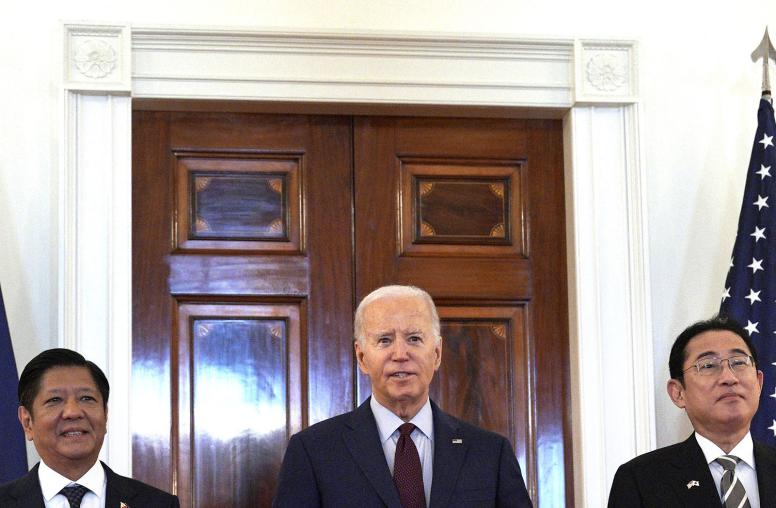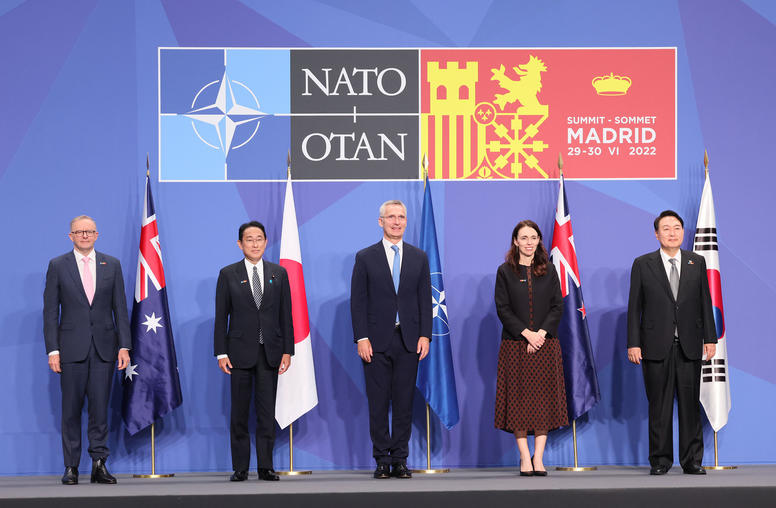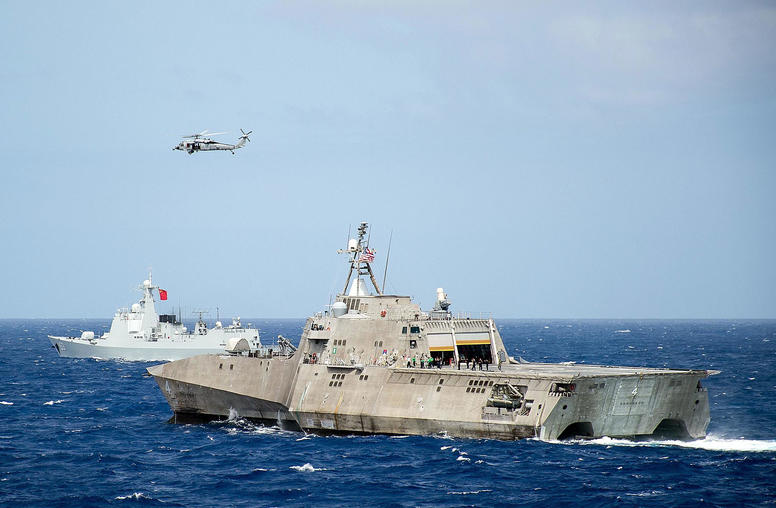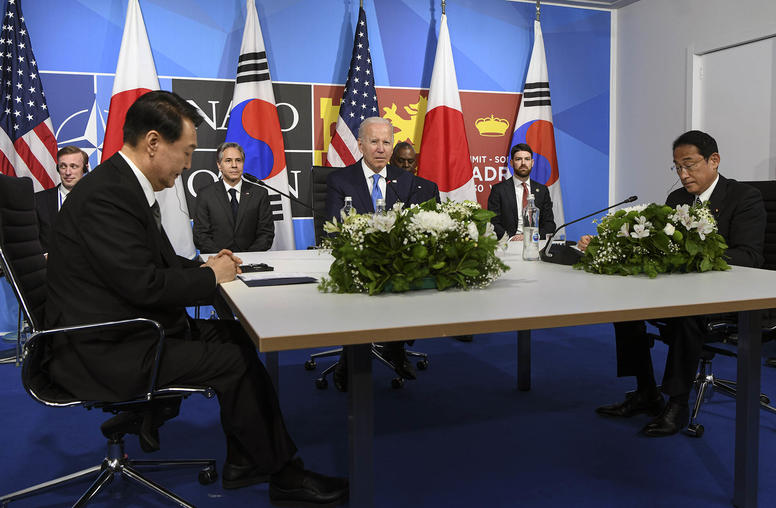 Japan
Japan
Featured Publications

Amid a Changing Global Order, NATO Looks East
As NATO celebrates its 75th anniversary this year, the Euro-Atlantic security alliance continues to deepen its engagement with Australia, Japan, South Korea and New Zealand, collectively known as the IP4. NATO has collaborated with these countries since the early 2000s, but Russia’s war against Ukraine, security challenges posed by China and renewed strategic competition have led to increased engagement. As the war in Ukraine grinds on and U.S.-China competition shows no sign of abating, the United States has much to gain from collaboration between its allies and partners in the Euro-Atlantic and Indo-Pacific.

The Indo-Pacific’s Newest Minilateral Emerges
Last week, Philippines President Ferdinand Marcos Jr. stepped foot in the Oval Office for the second time in a year. Joining Marcos this time was Japanese Prime Minister Fumio Kishida, the leader of the United States’ most important ally in Asia and, arguably, the world. The Philippines has long been among a second rung of regional allies, so this first-ever trilateral summit marks Manila’s entrance as a leading U.S. ally working to maintain order and prevent Chinese revisionism in East Asia.

Vikram Singh on the U.S.-Japan-Philippines Trilateral Summit
The United States, Japan and the Philippines are holding their first-ever trilateral summit this week. China’s “unprecedented” pressure and aggression over maritime claims will top the agenda. “There’s a fairly clear resolve … to not just let China bully its way to changing the status quo in the region,” says USIP’s Vikram Singh.
Current Projects

NATO and Indo-Pacific Partners: Understanding Views and Interests
To increase understanding of these changes and their impacts, USIP convened an expert study group consisting of experts from NATO countries and from NATO’s formal partner countries in the Indo-Pacific: Australia, Japan, South Korea and New Zealand, which are informally known as the Indo-Pacific Four (or IP4).

Crisis Communications with China in the Indo-Pacific
In today’s era of strategic competition between the United States and China, crises are more likely than ever in the Indo-Pacific region. Effective mechanisms are therefore needed to prevent such crises from escalating into armed conflict. To this end, USIP is examining crisis communication mechanisms and negotiations between China and its regional neighbors to identify common issues and themes across countries to provide lessons that can be learned and shared.

Resolving Tensions Between South Korea and Japan: An Essay Series
South Korea and Japan normalized relations in 1965, but unresolved historical disputes continue to undermine genuine bilateral reconciliation and optimal diplomatic, security and economic cooperation. Past efforts, both between the two countries and trilaterally with the United States, to help improve relations have generally emphasized a “future-oriented” approach that focused on common security and economic interests.